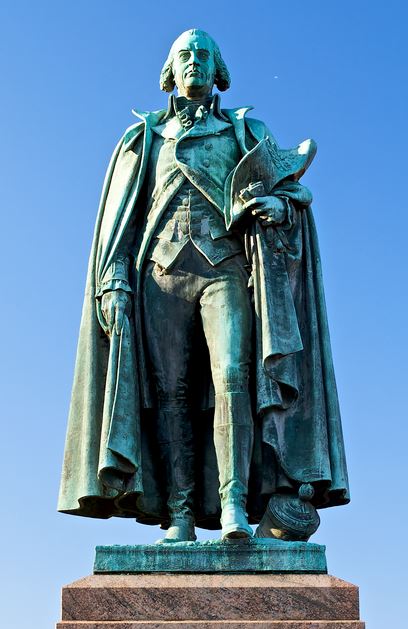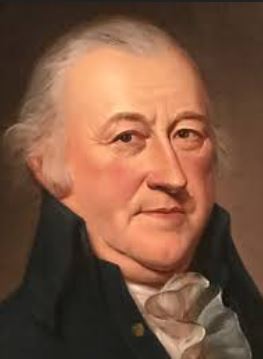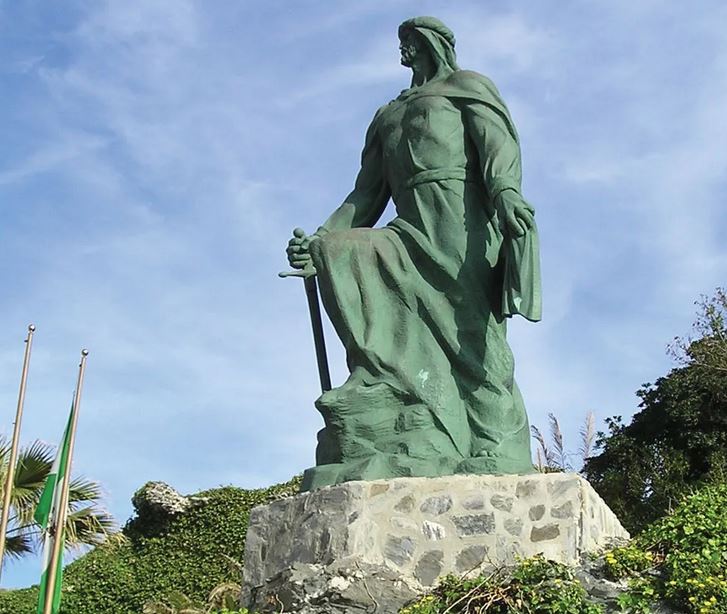Artemas Ward is widely recognized for his prominent role during the American Revolutionary War and his impactful political career in the early United States. As one of the first senior officers of the Continental Army, Ward played a pivotal part in organizing and leading the Massachusetts militia at the outbreak of the revolution. His leadership during key moments like the Siege of Boston and the Battle of Bunker Hill helped lay the groundwork for later American military successes.
Ward was not only a military leader but also a dedicated politician. He served in the Massachusetts General Court, where he actively opposed British policies, and later represented Massachusetts in the Continental Congress. Following the war, Ward continued his political service, notably as a member of the U.S. House of Representatives. His dual career as both a military officer and a statesman exemplifies his lasting legacy in shaping the nascent United States, both in securing its independence and in helping establish its government.
Early Life and Career
Background Information
Artemas Ward was born in 1727 in Shrewsbury, Massachusetts. His early career was marked by varied roles, including serving as a surveyor, schoolteacher, and holding several local government positions. These roles built his reputation within the community and set the stage for his later involvement in politics and military affairs. His administrative skills in local government would become crucial when leading the Massachusetts militia during the American Revolution.
French and Indian War Service
Ward’s military experience began during the French and Indian War, where he served as a major in the Massachusetts militia. This experience gave him practical knowledge in military leadership and tactics, which proved invaluable during the Revolutionary War. His service in the French and Indian War not only prepared him for the larger conflict to come but also established him as a trusted figure in Massachusetts military circles. This prior military background directly contributed to his selection as Commander-in-Chief of the Massachusetts forces during the Revolutionary War, where his leadership proved essential in the early stages of the conflict.
2. Political Career and Resistance to British Rule
Massachusetts General Court
Artemas Ward’s political career began when he was elected to the Massachusetts General Court, the legislative body of the colony. His early involvement in politics allowed him to become an influential figure in shaping Massachusetts’ resistance to British rule. As a member of the General Court, Ward actively worked to defend the rights of the colonies, which were increasingly threatened by British policies.
Opposition to British Policies
Ward’s opposition to British policies grew stronger after the enactment of the Coercive Acts in 1774, which were intended to punish the colonies, especially Massachusetts, for the Boston Tea Party. These punitive laws restricted Massachusetts’ self-governance, closed Boston Harbor, and forced local officials to answer directly to the British crown. Ward was instrumental in denouncing these acts. At the Worcester Convention in 1774, he helped draft resolutions that rejected British control over Massachusetts’ government and judiciary. This move was a direct challenge to British authority and helped set the stage for widespread rebellion across the colony.
Pre-Revolution Tensions
The tensions that Ward helped foster in Massachusetts were part of a broader revolutionary sentiment growing throughout the colonies. His work in opposing British policies and promoting local governance aligned with efforts to resist British control elsewhere. Ward’s role in the Worcester Convention led to the Boston Resolves, which outlined the colonies’ grievances and resistance efforts. These actions helped solidify Massachusetts’ position as a central player in the fight for independence and contributed to the larger push for rebellion that culminated in the American Revolution.

3. Military Leadership in the American Revolutionary War
Commander-in-Chief of Massachusetts Militia
As tensions escalated into armed conflict, Ward was appointed Commander-in-Chief of the Massachusetts militia following the battles of Lexington and Concord in April 1775. This made him the de facto leader of the New England forces during the early stages of the Revolutionary War. His military experience from the French and Indian War was critical in organizing and fortifying the local militias, which were largely made up of farmers and volunteers with little training. Under his command, the number of troops swelled to over 23,000 men, a testament to his leadership and ability to inspire confidence in the cause.
Siege of Boston
Ward played a pivotal role in the Siege of Boston, which began shortly after the battles of Lexington and Concord. The siege marked one of the first major conflicts of the war and involved surrounding British troops in Boston to prevent them from advancing further into New England. Despite the challenges of leading an inexperienced and poorly equipped militia, Ward managed to hold the British at bay. His strategic decision-making during the siege showcased his leadership under pressure and helped secure an early morale-boosting victory for the Americans.
Battle of Bunker Hill
One of Ward’s key decisions during this period was his order to fortify Breed’s Hill (commonly referred to as Bunker Hill) in June 1775. Anticipating a British assault on Charlestown, Ward recognized the strategic importance of controlling the high ground. Although the Americans eventually ran out of ammunition and were forced to retreat, the Battle of Bunker Hill inflicted heavy casualties on the British and demonstrated that the colonial forces could stand up to a professional army. British General Howe is famously quoted as saying, “Another such victory and the British would lose the war,” highlighting the psychological victory the Americans gained from the battle, despite their retreat. Ward’s decision to fortify the hill was a key moment in the early stages of the Revolutionary War, setting the tone for future American resilience.
These early successes, led by Ward, laid the groundwork for the eventual appointment of George Washington as Commander-in-Chief of the Continental Army. Though Ward was eventually replaced, his contributions in organizing the Massachusetts militia and leading during critical early battles cemented his place as a foundational figure in the American military.
4. Later Political Contributions
Service in the Continental Congress
Even after his military career, Artemas Ward remained deeply involved in shaping the new American government. In 1780, Ward was chosen to represent Massachusetts in the Continental Congress, where he served until 1781. His participation in this critical period helped shape the direction of the war effort and the future governance of the fledgling United States. As a delegate, Ward contributed to the debates on how the new nation should be governed and supported efforts to sustain the war against Britain through collective decision-making and cooperation among the states.
U.S. House of Representatives
After the war, Ward’s political influence continued as he was elected to the U.S. House of Representatives, where he served from 1791 to 1795. A member of the Federalist Party, Ward aligned himself with the policies of strong centralized government, advocating for the kind of unified national framework that George Washington and John Adams endorsed. His role in the House allowed him to contribute to the nation’s early legislative foundation, helping guide the young republic through its formative years. During this time, Ward worked closely with other influential figures, supporting efforts to strengthen the federal government and ensure the stability of the newly independent United States.

5. Ward’s Legacy
Historical Overshadowing
Despite his critical early contributions, Artemas Ward’s legacy is often overshadowed by more prominent figures such as George Washington. Ward played a vital role in organizing and leading the Continental Army during its early struggles, yet his contributions have not received the same level of recognition. His early military leadership was crucial in setting the stage for the successes that followed, particularly in battles like Bunker Hill, where his strategic decisions helped shape the trajectory of the revolution.
Impact on the Early U.S. Government
Ward’s involvement in both military and political spheres underscores his significant impact on early American history. He not only helped form the Continental Army but also played a vital role in the post-war government, where his Federalist principles helped shape the development of a strong national structure. His leadership in the U.S. House of Representatives and the Continental Congress demonstrated his commitment to building a stable and unified government for the new nation, helping lay the groundwork for its future success.
Reflection on His Contributions
Artemas Ward’s dual career as a military leader and politician reflects the efforts of many early American figures who contributed to both the war for independence and the establishment of the United States government. His ability to transition from the battlefield to legislative halls highlights the adaptability and dedication of leaders during this critical period. Though his name may not be as widely remembered as some of his contemporaries, Ward’s long-term significance to American independence and governance is undeniable.
Conclusion
Artemas Ward was a pivotal figure in both the military and political arenas of early America. From his leadership as Commander-in-Chief of the Massachusetts militia to his service in the U.S. Congress, Ward’s contributions were instrumental in shaping the revolutionary cause and the early American government. Though his legacy is often eclipsed by more famous figures, his impact on the American Revolution and the foundational years of the United States remains a critical part of the nation’s history. Ward’s role as an unsung hero of American independence continues to be reflected in the enduring success of the institutions he helped build.
FAQ
1. Who was Artemas Ward?
Artemas Ward was a military leader and politician from Massachusetts who played a crucial role in the early stages of the American Revolutionary War. He also served in the Massachusetts General Court and later became a member of the U.S. House of Representatives.
2. What was Artemas Ward known for in the American Revolutionary War?
Ward is best known for his leadership as Commander-in-Chief of the Massachusetts militia during the Siege of Boston. His strategic decision to fortify Breed’s Hill led to the famous Battle of Bunker Hill, an important early engagement in the war.
3. What political roles did Artemas Ward hold after the Revolutionary War?
After the war, Ward served in the Massachusetts state legislature, the Continental Congress (1780–1781), and the U.S. House of Representatives (1791–1795). He was aligned with the Federalist Party, advocating for a strong centralized government.
4. What contributions did Artemas Ward make to the Continental Army?
Ward helped organize and lead the Continental Army during its early days. His leadership in the Siege of Boston and preparation of the Massachusetts militia was crucial in establishing the Continental Army’s capabilities.
5. How did Artemas Ward contribute to the resistance against British rule?
As a member of the Massachusetts General Court, Ward actively resisted British policies such as the Coercive Acts. He played a key role in drafting resolutions at the Worcester Convention, which helped set the stage for the rebellion in Massachusetts.
6. Why is Artemas Ward’s legacy often overshadowed?
Although Ward made significant contributions to the early success of the Revolutionary War and post-war government, his legacy is often eclipsed by more famous figures like George Washington. Nonetheless, his early military and political roles were essential in shaping the American Revolution.
7. What was Artemas Ward’s role in the Battle of Bunker Hill?
Ward ordered the fortification of Breed’s Hill, anticipating a British attack. Though the Americans eventually lost the battle due to lack of ammunition, it was a psychological victory as they inflicted heavy casualties on the British, showing they could stand up to British forces.
8. Did Artemas Ward have any military experience before the Revolutionary War?
Yes, Ward gained valuable military experience during the French and Indian War, which later helped him in organizing and leading the militia during the American Revolution.
9. What is Artemas Ward’s lasting legacy in American history?
Ward’s legacy lies in his contributions to both military and political efforts during the Revolutionary War and the early years of the United States. He helped establish the Continental Army and later worked in Congress to support the new government.




